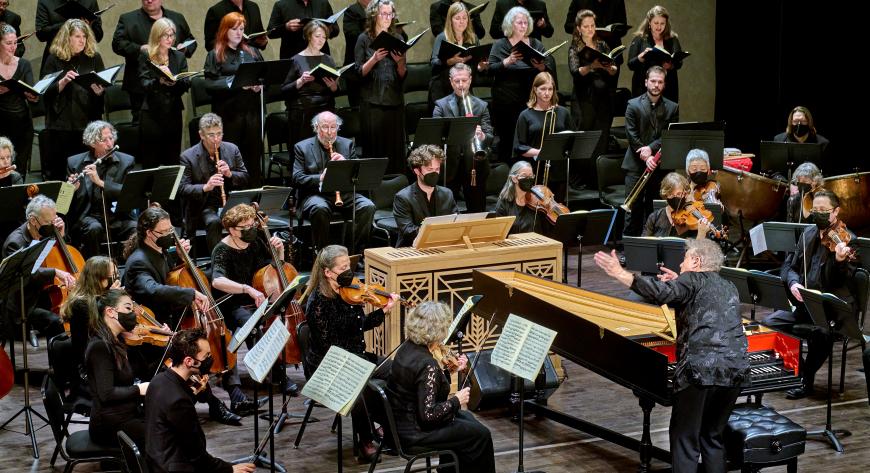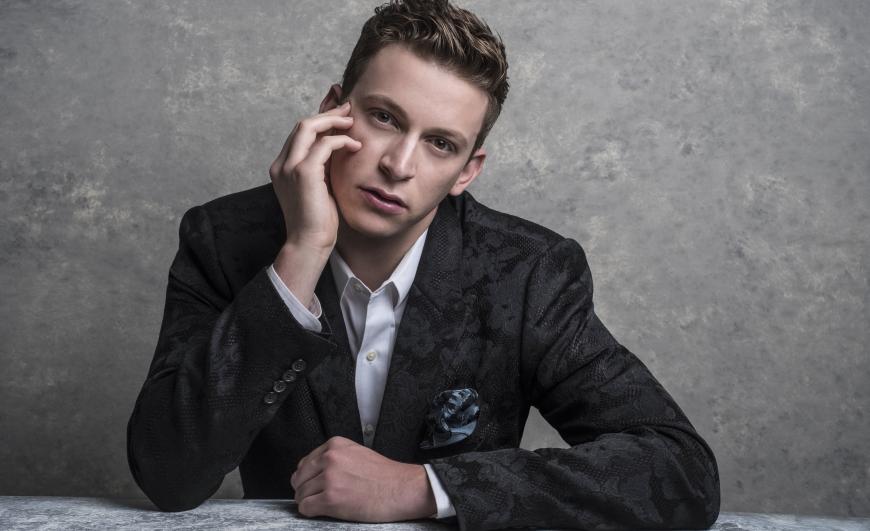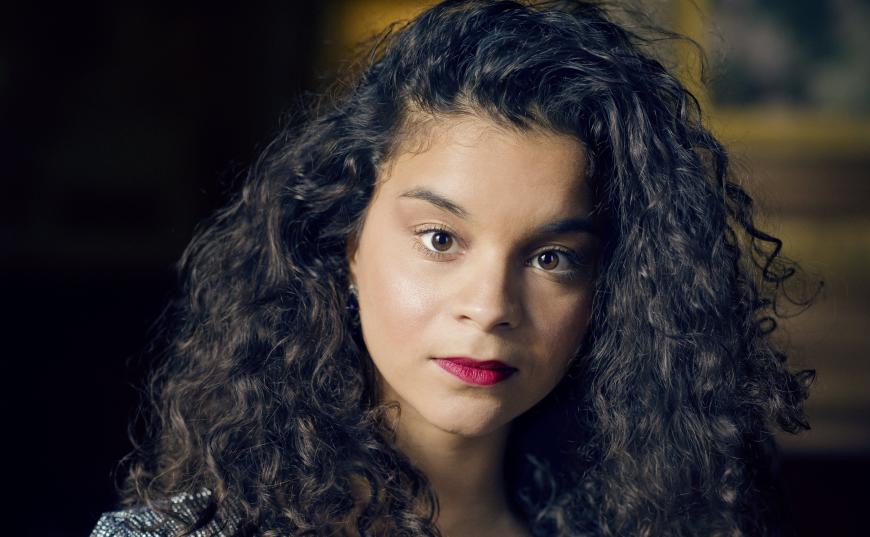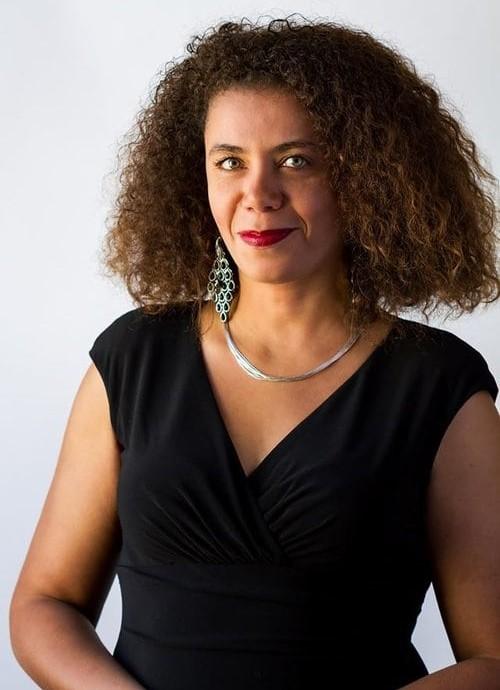
San Francisco Opera’s Dialogues of the Carmelites isn’t the only chance local audiences have to witness vocally resplendent martyrdom this month. In four performances at various locations Oct. 20–23, Philharmonia Baroque Orchestra & Chorale will lend its signature authentic interpretation to Handel’s oratorio Theodora.
1750 was known in Britain as “the year of the earthquakes.” Though not substantial by our Californian standards, a 2.6 quake just before Theodora’s opening was enough to send London’s aristocracy fleeing. That, along with the powerful antiestablishment content of the story, may have prevented the premiere of the work from making an impact, but over the centuries, consensus has grown that the three-act oratorio, for six voices and chorus, shows the composer at the peak of his powers. For the PBO program, critic Andrew Mellor writes, “For many, Handel’s oratorio Theodora contains the composer’s most touching and emotionally humid music. Like Wagner’s Parsifal or Beethoven’s late string quartets, it carries within its luminous tenderness a weight of expression that appears to come from deep inside the composer.”
Theodora is a disturbing and tragic love story involving a Christian noblewoman (not to be confused with the Byzantine empress Theodora, wife of Justinian). This Theodora is a devout Christian in love with a Roman soldier, Didymus. Theodora convinces Didymus to convert to Christianity and then, after refusing to betray her religion by offering sacrifice in a pagan ritual, is condemned to “be prostituted in the publick Stews,” as the original storywriter put it. Didymus tries to save her, but in the end, both are martyred. Such sordid content sets this work apart from Handel’s other collaborations with frequent librettist Thomas Morrell, as does the piece’s non-biblical religious subject matter, derived from a 1687 story by chemist and theologian Robert Boyle.
The work was performed only occasionally in the U.S. for most of the last century, but a 1969 recording with Johannes Somary leading the English Chamber Orchestra brought it back to a wider audience. That recording featured contralto Maureen Forrester in the role of Theodora’s beloved, Didymus, continuing the long tradition of giving over castrati roles to female mezzo-sopranos. But as the trend has moved away from mezzos singing castrati parts, Didymus has now generally been sung by a countertenor.

For these performances, the role will be lent some serious star power by Aryeh Nussbaum Cohen. The San Francisco Chronicle’s Joshua Kosman once described the former Adler fellow as “the extravagantly gifted young countertenor whose every appearance only serves to add luster to an already remarkable level of accomplishment.” Cohen has recorded with PBO a recent rendition of Handel’s Saul and also has a solo CD of Baroque repertoire with American Bach Soloists. He will sing Messiahs later this season with both ABS and the San Francisco Symphony.
The role of Didymus is countertenor heavy lifting. It was originated by one of the most famous castrati, Gaetano Guadagni, who was notable for being the original Orpheus in Gluck’s Orfeo ed Euridice and also for possessing a bravura coloratura, for which Handel revised several arias in the 1750 Foundling Hospital version of Messiah to exploit.
But what of Theodora herself? Countertenor Jakub Józef Orliński, another recent Didymus, once remarked that “Theodora is the powerful one in the relationship.” As Michelle Bradley, who is set to sing Madame Lidoine in SF Opera’s Dialogues, recently noted, there’s a certain amount of “girl power” going on backstage at the opera house. It’s not a stretch to say that there’s an element of female empowerment to Theodora, too, despite the tragic outcome and the male-female romance.

San Francisco audiences will have their first chance to hear a rising star in the title role. Julie Roset is a native of Avignon, France, a 2022 winner of the Metropolitan Opera Laffont Competition, and a recent graduate of Juilliard, where she performed with the school’s period-instrument ensemble, Juilliard415, under William Christie. Already garnering praise in both the opera house and on the concert stage, Roset will follow up her PBO engagement with an Orfeo for Teatro Real in Madrid and L’incoronazione di Poppea with Opéra Royale de Versailles and Opéra du Rhin. She can be heard on a Ricercar recording of Handel’s Salve Regina with Orchestre Millenium.
The voice types in this work stay on or above the staff, with only the sinister role of Valens carrying the lower tones. That part will be sung by bass-baritone Dashon Burton, a member of the Grammy-winning ensemble Roomful of Teeth and a current artist-in-residence with San Francisco Performances. He’s a prolific performer with notable solo credits with period ensembles and festivals. A recent recital in Boston was praised as “a dream come true,” and Californians recently heard him in Michael Tilson Thomas’s own composition, Meditations on Rilke, with the Los Angeles Philharmonic.

Though the themes of this drama are grave, as Theodora’s aria “With darkness deep as is my woe” reveals, Handel’s vibrant introspections and moving duets illuminate the darkest recesses of the human spirit. This score also gives ample room for the chorus (under Valérie Sainte-Agathe) to shine. Music Director Richard Egarr will conduct.
Theodora has been taken up recently by star mezzo Joyce DiDonato, who toured the piece as Irene, with Lisette Oropesa in the title role. A recording with that cast is set for release later this month. A 1996 Glyndebourne production directed by Peter Sellars was groundbreaking for its secular depiction of the martyrdom, portraying it as a modern-day execution. Dawn Upshaw sang the title role, while Lorraine Hunt took on the important secondary role of Irene. Available on video, that production still inspires singers like Julia Bullock, who embraced the title role for a production with Covent Garden earlier this year. Those wanting to eat locally grown Baroque are directed to the 1992 Harmonia Mundi recordings of PBO’s own production. Reissued in 1996, the recording was made at Skywalker Ranch around the time of the ensemble’s live performances and features Hunt in the title role.
Churchgoers of an earlier era may have heard Irene’s air “Lord, to Thee each night and day,” but San Franciscans’ first recorded exposure to the work was in 1903, at a meeting of the music section of the California Club, which utilized Theodora in a discussion of the “evolution of the oratorio.” Director Peter Sellars has credited hearing Hunt as Theodora with inspiring him to suggest Theodora for his Glyndebourne debut, so no matter how you parse it, PBO has played an important role in the piece’s modern history. With these performances, the ensemble offers a fine cast and a still relatively rare chance to hear Handel’s penultimate oratorio, a favorite of the composer’s.



